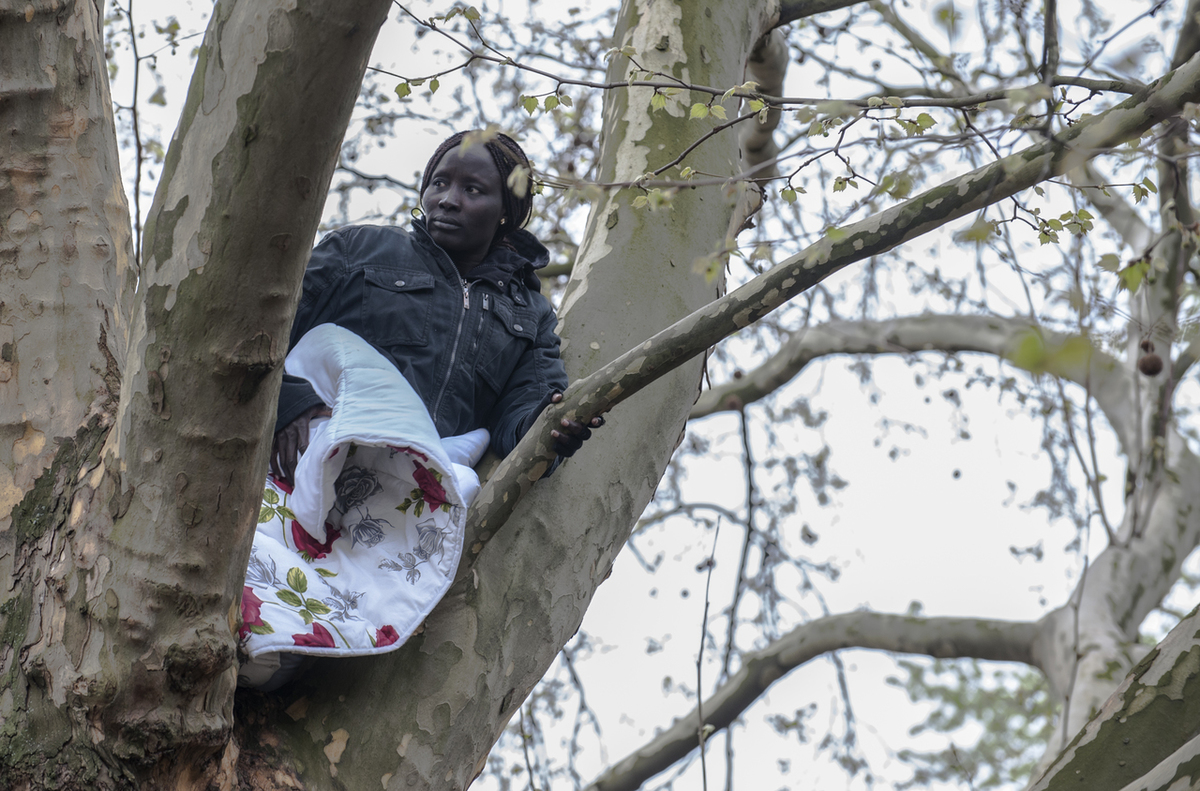Napuli Langa during the Occupation of Oranienplatz in Berlin (April 10, 2014)
Abstract
In September 2012, a group of refugees organized a protest march from Würzburg to Berlin to protest against the German asylum law, deportations, collective camps and to campaign for freedom of work and movement. The reason for this Germany-wide protest movement was the suicide of Mohammad Rahsepar from Iran, who was housed in a Würzburg shared accommodation. The march took two routes, on foot and by bus, and ended in October 2012 with the occupation of Oranienplatz. For almost two years, Oranienplatz served both as a shelter and as a starting point and hub for organizing and coordinating protests and public relations. The occupation was a public symbol and part of a broad movement that advocated for the rights of refugees in many German cities and regions.
After talks with representatives of the Berlin Senate, the camp was cleared on April 8, 2014. Some activists remained on the square in protest against the eviction, including Napuli Paul Langa from Sudan, who held out in a tree for several days. Many of the activists sought shelter at churches after the eviction to continue their struggle for legal recognition.
Source

Source: Photograph: Paul Zinken/dpa.
© dpa/picture alliance